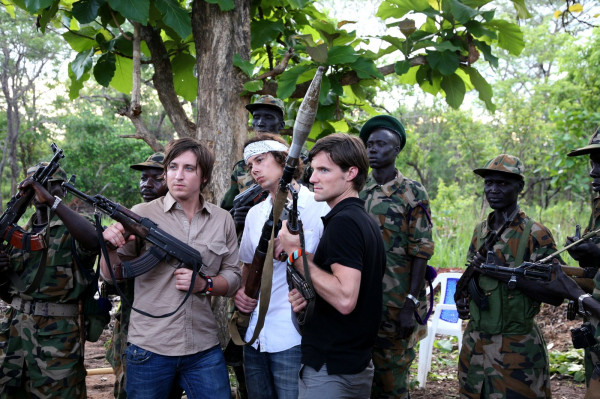Do a web search for the Egyptian Influence Network and what emerges is a visual depiction of the social network that helped bring down President Hosni Mubarak a year ago. The United States government knew about broad public discontent, but did not have a meaningful relationship with these new digital elites. It certainly underestimated their power.

Earlier this week other digital actors released a dramatic film on the Lord’s Resistance Army, called KONY 2012. It instantly went viral; the State Department learned of it via the daughter of its Deputy Spokesman (in the interest of full disclosure, my former deputy). In this case, Jason Russell, the film’s producer, is trailing U.S. policy. The government months ago deployed military advisors to help improve the ability of regional governments to defeat the LRA.
Both cases underscore the dynamism of the digital age and the pressures it places on U.S. diplomacy. More and more people will have access to the kind and quality of information that was previously reserved for governments. Digital media do not fundamentally change the diplomatic process, but it expands the number of influencers, accelerates the process and can generate sudden shifts in public opinion.
As cell phones and other technologies become even more ubiquitous – equipped with cameras and connected to the Internet – everything we say and do will be increasingly visible. Government bureaucracies are going to struggle to keep pace and respond meaningfully in real time.

The State Department is already aggressively expanding its use of social media to communicate beyond governments directly to the people in multiple languages. Secretary of State Hillary Clinton in her first Quadrennial Diplomacy and Development Review has created a vision of a new breed of ambassador who will be more visible and more empowered than ever. Recently minted Ambassadors Robert Ford and Michael McFaul in Syria and Russia respectively are great examples of “early adopters” who have led significant engagement campaigns using social media.
But they are still the exceptions, not the rules. It will take some time to change bureaucratic culture whose first instinct is to carefully control the flow of information. But the global information infrastructure is simply too advanced to be controlled. The new digital elites must be engaged.
This will require both cultural and process changes to empower more leaders to willingly and effectively communicate with key audiences around the world. It will take a new generation of Foreign Service officers for whom information and communications technology is second nature. This will involve more engagement, more risk taking and greater focus on global public opinion.
Given what we are seeing in the Arab Awakening, public opinion will shape policies and diplomatic options in more countries of consequence to the United States. Policies are going to be more populist – the immediate impact of the Koran burning is another recent case in point.
Technologies are transformed much faster than cultures. They will change diplomacy, but it will take a while.
Related articles
- R we there yet? A look at the Under Secretary for Public Diplomacy (and Public Affairs) (mountainrunner.us)
- Public Diplomacy: Books, Articles, Websites #60 (IPDGC Home)
- Kony 2012 – Activism that has our Attention (Take Five)





